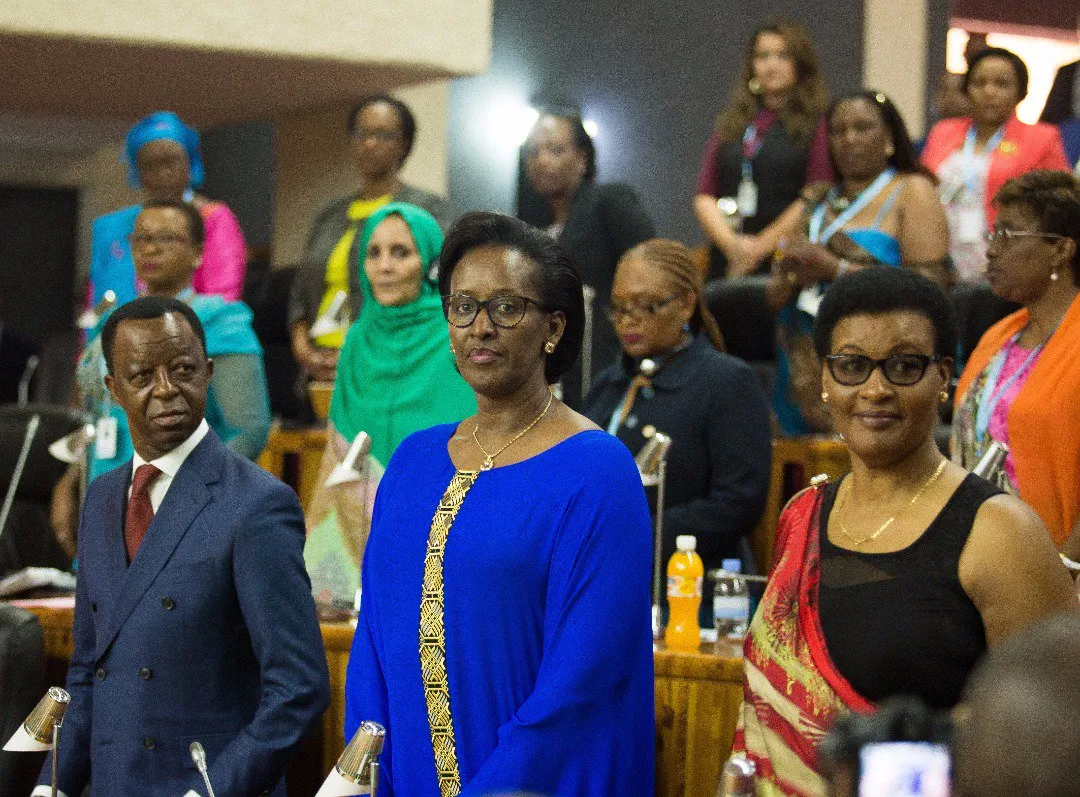First Lady Jeannette Kagame Urges Women to Take a Leading Role in Fighting Corruption in Africa
On October 31, 2018, Rwanda's First Lady, Jeannette Kagame, passionately called on African women to become more actively involved in combating corruption, a plague that disproportionately affects them. Speaking at the 11th Pan-African Parliament session on women’s rights under the theme “The Role of the Pan-African Parliament in Combating Corruption,” Mrs. Kagame emphasized the urgent need for female leadership in this fight.
While women are statistically less involved in corruption, they often suffer its consequences the most—limited access to education, fewer job opportunities, and lower wages compared to their male counterparts. A 2012 UNDP report revealed that 76% of women were denied essential services due to corruption. Yet, data also suggests that institutions led by women or with a significant number of women in decision-making roles tend to have lower levels of corruption and are better governed.
While women are statistically less involved in corrupt activities than men, the consequences of corruption fall more heavily on them. According to a 2012 United Nations Development Programme (UNDP) report, 76% of women surveyed reported being denied access to essential public services because of corrupt practices. Corruption acts as a barrier, limiting women’s access to education, health care, employment opportunities, and fair wages, thereby deepening gender inequalities.
Despite these challenges, data consistently shows that institutions led by women, or those with substantial female representation in decision-making roles, tend to have lower levels of corruption and exhibit stronger governance. This evidence underscores the potential of women as powerful agents of change in promoting transparency and accountability across Africa’s political and economic systems.
First Lady Kagame stressed that empowering women requires a multifaceted approach—one that combines legal reforms, inclusive leadership, and social empowerment. She pointed to Rwanda’s own progress as a shining example of how a country can harness gender equality to strengthen governance. “Laws, institutions, and strategies must reinforce accountability and ensure gender parity at all levels of governance,” she asserted. Rwanda’s commitment to transparency, coupled with deliberate efforts to promote gender equality in both the public and private sectors, serves as a model for other nations.
Mrs. Kagame stressed the importance of empowering women through legal reforms and inclusive leadership. She affirmed that in Rwanda, significant efforts have been made to promote transparency and gender equality across both public and private sectors. "Laws, institutions, and strategies must reinforce accountability and ensure gender parity at all levels of governance," she stated.
Furthermore, the First Lady urged lawmakers to reflect on their critical role in eradicating corruption by enacting progressive laws and holding governments accountable. She highlighted the need for female leaders in parliament to champion transparency and integrity as part of their legislative responsibilities.
The session concluded with a collective call to action: to strengthen gender equality laws, establish robust governance institutions, and foster political will that empowers citizens—especially women—to actively participate in building a corruption-free Africa.
During her address, Mrs. Kagame also called on lawmakers to recognize their pivotal role in the fight against corruption. She urged parliamentarians, particularly female leaders, to take bold legislative action that strengthens anti-corruption laws and holds governments accountable. “Female leaders in parliament must champion transparency and integrity as key pillars of their legislative responsibilities,” she said, emphasizing that strong political will is essential to effect meaningful change.
The Pan-African Parliament session concluded with a unified call to action: to strengthen gender equality legislation, build robust governance institutions, and foster political environments where citizens—especially women—are empowered to actively participate in decision-making processes. This collective commitment reflects a shared vision for a corruption-free Africa, where equitable development benefits all citizens.
First Lady Jeannette Kagame’s advocacy shines a spotlight on the transformative role women can play in combating corruption, advancing good governance, and building resilient societies. As African countries continue to grapple with systemic corruption, empowering women and ensuring their meaningful participation in leadership roles is not only a moral imperative but also a practical strategy for sustainable development.
Her message invites all stakeholders—governments, civil society, and the private sector—to work collaboratively to create an enabling environment where transparency thrives and corruption is decisively tackled. By supporting women’s leadership and enforcing accountability mechanisms, Africa can move closer to achieving its development goals and realizing a more just and equitable future.





.jpg)




0 Comments